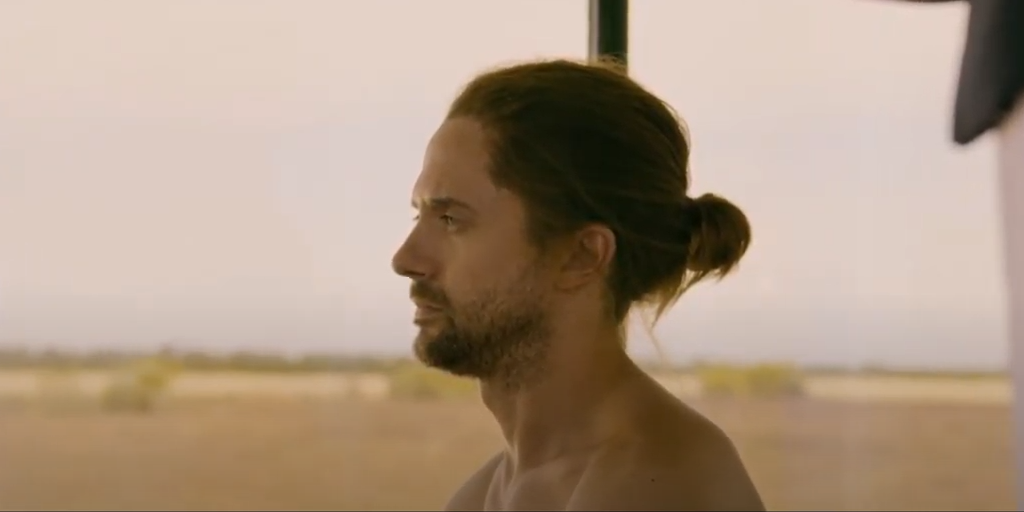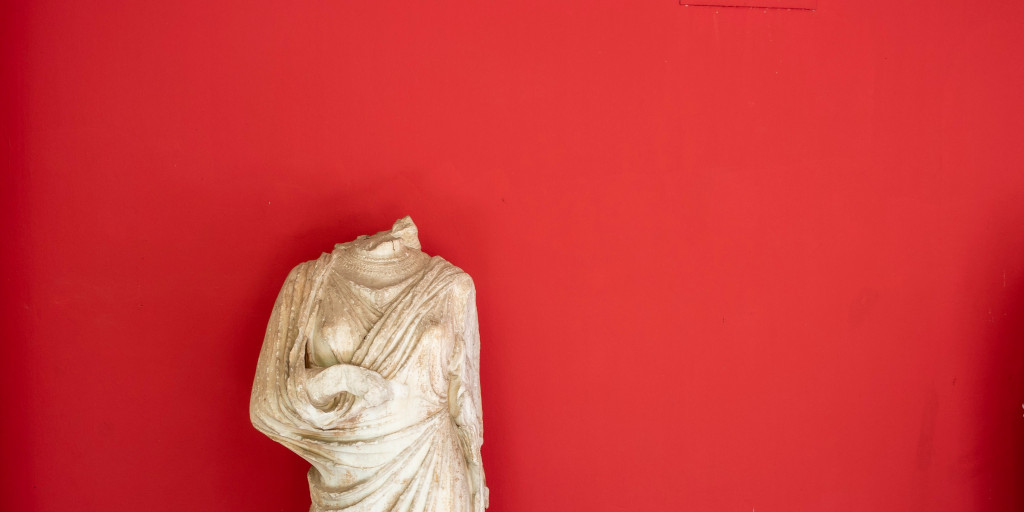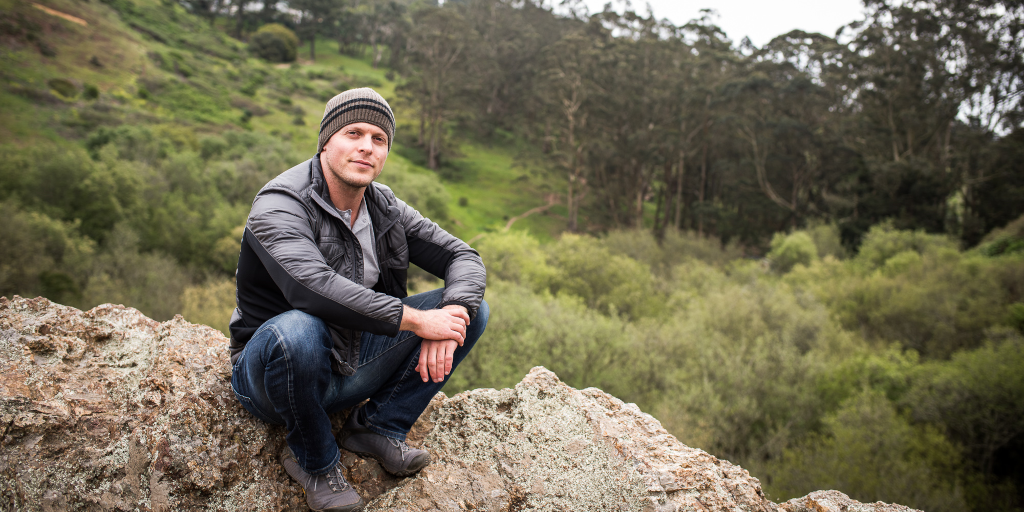 When I first heard the phrase “entrepreneurial spirit,” I laughed. Scoffed, actually.
When I first heard the phrase “entrepreneurial spirit,” I laughed. Scoffed, actually.
I pictured zen-like self-help gurus in yoga pants up on a mountain retreat à la Topher Grace’s Black Mirror tech genius encouraging his followers to embrace their culturally-appropriated spirit animals and open their chakras for more fulfilling hostile takeovers.
Or Jared Leto. 
“Does anyone even say that?” I asked Adam, my editor, during our 1:1.
“It’s an interesting concept,” he said. “I think you should explore it.”
Dubiously, I set off to find out what this entrepreneurial spirit thing was all about.
Naturally, Adam was right.
Not only did I discover it’s definitely not as mystical as it sounds, but it draws heavily on some very ancient philosophy, and makes sense for both the personal and the professional.
I’ll walk you through what I learned and how you can use it, or you can skip ahead to the juicy bits:
- What is an entrepreneurial spirit?
- What does ancient philosophy have to do with modern entrepreneurs?
- Ryan Holiday: writing, entrepreneurship, and Stoic principles
- Arianna Huffington: Stoic inspiration for a better work/life balance
- Tim Ferriss: the philosophy of one of the most innovative entrepreneurs
- How to cultivate your own entrepreneurial spirit
Now, get comfortable and still your mind…
What is an entrepreneurial spirit?
The entrepreneurial spirit is a state of mind.
Forbes describes the entrepreneurial spirit as an attitude. Countless others use buzzwords like “maverick,” “passionate,” “agile.” A successful entrepreneur needs all of these things. But these qualities aren’t singular to entrepreneurs alone. All of us could use a bit more passion and agility in our lives, not to mention some mavericking once in a while.
Yes, I did just make up that word.
What all these lists and how-tos have in common, though, is that the entrepreneurial spirit is essentially summed up in one word: action.
It doesn’t make sense to act haphazardly. At the same time, rigidity is limiting. You can spend six months absolutely perfecting your idea before making a move, only to discover someone else launched an identical project five months and 21 days ago.
That is where the entrepreneurial spirit comes in. It is the mindset of knowing when to act to get the results you want, and having the conviction to act in that moment.
All well and good, you say. But I’m not an entrepreneur. What does this have to do with me?
Everything.
90% of professionals see entrepreneurship as “pursuing opportunities” more than launching an enterprise, and 58% of Millennials (an entrepreneurial generation if ever there was one – not that I’m biased) consider themselves to be entrepreneurs.
You don’t need to be an entrepreneur to create, possess, or nurture your own entrepreneurial spirit, and stoking the fire of that mindset is – maybe not easier – but more accessible than you might think.
There’s nothing New Age about it – today’s leaders are looking to an old idea: Stoicism.
What does ancient philosophy have to do with modern entrepreneurs?
When you hear the word stoic today, you think of someone who is aloof or indifferent. A Stoic in the ancient sense, however, is someone who tries to get rid of negative thoughts to develop an inner strength and happiness.
Stoicism’s aim of achieving tranquility during strife is one of the reasons – hello, 2020! – the philosophy has seen a recent resurgence in popularity. So, where did it come from?

Greece, 300-ish BCE: A young merchant from Citrium with an interest in philosophy arrives in Athens after narrowly surviving a shipwreck. He quickly becomes a student of Crates, the most famous Cynic in Greece, and also studies under many other great philosophers.
Eventually, this merchant branches out and begins teaching in the Agora of Athens to his pupils who gather around the Stoa Poikile. This man is Zeno of Citium, and those pupils become the first Stoics.
Stoicism, in a nutshell: Eudaimonia (flourishing; living well) is achieved by attaining virtue, or excellence of character. Virtue, in this sense, is not the modern idea of virtue; for the Stoics, Virtue means to live in accordance with nature. And to be virtuous, you need to have a comprehensive knowledge of nature and how the universe works.
Most things are beyond our control. Other people’s opinions and actions, our own reputations, global pandemics – these are all things we don’t control. We can influence them with our own actions, but ultimately, what’s going to happen is what’s going to happen, whether we like it or not.
Then there are the things we do control, namely our minds: opinions, judgments, beliefs, desires, and goals. We can’t control what happens to us, but we can control how we respond to it.
If our happiness depends on something outside our control – what Stoics classify as “indifferents” – we’ll be miserable if we don’t have them, and miserable if we do, because we fear losing them.
Stoic philosophy doesn’t stop at things such as wealth or reputation, though. What about misfortune? What about adversity? What about the global pandemic and everything it’s caused?
There is no good answer to that, and even the Stoics knew it. The best Seneca could come up with was: It’s not about what you endure, but how you endure it.
The Stoics recognized that few people – if any – would ever fully achieve the principles of Stoicism, and that if someone did manage to master every principle, that person would be more godlike than human.
![]()
“By the gods, I would love to see a Stoic. But you cannot show me one fully formed.” – Epictetus
The philosophy of Stoicism is meant to be a way of life: it’s a tool to shape yourself into a person who can stand through difficulty with calmness, poise, and strength. If, when adversity inevitably comes knocking you’re able to meet it calmly and rationally, you’ll not only react but act.
What did I say defined the entrepreneurial spirit again…?
I know, I know. It’s all well and good to talk about how a bunch of dead guys achieved inner peace over two millennia ago. Their philosophy can’t be the least bit relevant to today’s hyperspeed, hyperdigital, hyperintense lifestyle.
You sure about that?
Ryan Holiday: writer, entrepreneur, Stoic

Over the years, Ryan Holiday has built an impressive empire for himself from very humble beginnings. He’s a successful marketer, author, speaker – not to mention running a successful magazine and podcast about Stoicism.
Holiday’s main focus is taking philosophy – or the idea of philosophy – out of the halls of Academia and returning it to its roots: an everyday practice for living a good life, used by everyone from slaves to emperors to guide them through their problems.
Holiday styles himself as overly accessible – answering his own email, appearing primarily in some version of jeans and a T-shirt, and inviting subscribers to chat with him about what he’s written.
He writes extensively about the Stoics, and describes them as “men of action.” And no wonder: Marcus Aurelius was the most powerful emperor in history; Epictetus obtained freedom from slavery; Seneca is still considered a literary master, and during his life served as tutor and advisor to the emperor.
That emperor, unfortunately, was Nero, and it didn’t end well for Seneca, but still. These are some pretty high-flyers in the ancient world.
![]()
“The mind adapts and converts to its own purposes the obstacle to our acting. The impediment to action advances action. What stands in the way becomes the way.” – Marcus Aurelius
This quote by Marcus Aurelius is what started Holiday down the road of the Stoics, and is, according to him, representative of a very distinctly Stoic optimism – because Stoicism is optimistic at the heart of it.
Obstacles are not impediments; they’re opportunities. Holiday lists numerous instances of leaders practicing this principle, but it comes down to two steps:
- Approach the disaster rationally. Don’t panic. Be calculated.
- Find the opportunity. Turn the negative into a positive – a lesson, a skill, etc.
Deals will fall through. Funding won’t be approved. A global pandemic will turn our lives upside down for a year… or more. Probably more. There will be wildfires, earthquakes, tsunamis, hurricanes – and there is nothing we can do about any of that.
![]()
“There is only one thing we really control: our attitude and approach.” – Ryan Holiday
Arianna Huffington: Stoic inspiration for entrepreneurial success

Work/life balance has become a major pain point for most of us since we’re now home-ing from work. I know more than once I’ve wished I had an office to leave (or disappear to) for the sake of enforcing that hard separation between Work and Home which no longer exists.
Arianna Huffington – you may be familiar with her publications Thrive and The Huffington Post – has repeatedly stressed the importance of renewing and recharging ourselves – through Stoicism.
She even carries a laminated quote from Marcus Aurelias around in her wallet:
“People look for retreats for themselves, in the country, by the coast, or in the hills. There is nowhere that a person can find a more peaceful and trouble-free retreat than in his own mind. . . . So constantly give yourself this retreat, and renew yourself.”
Huffington didn’t always follow these principles. Like many of us, she believed that real success depended on perpetual movement. Always thinking, always on, always looking at the next horizon.
That changed in April of 2007 when she woke up in a pool of blood with a broken cheekbone after passing out from exhaustion and hitting her head on the corner of her desk.
From academics to CEOs to creatives, sleep-deprivation and the extremes of physical duress are a badge of honor – you’re not working hard enough if you’re not suffering.
![]()
“By any sane definition of success, if you are lying in a pool full of blood on the floor of your office, you are not successful.” – Arianna Huffington
I think we can all agree with that.
To measure a person’s life, in Huffington’s opinion, we need to expand the meaning of success, and define it by our own criteria. “Put joy back in our everyday lives,” she says. The best way to do that, in turns out, is by recharging ourselves. Namely, getting a good night’s sleep.
![]()
“The only way to find peace and thrive is to take breaks from the world and make time to regularly renew ourselves by reconnecting with ourselves.” – Arianna Huffington
Tim Ferriss: the philosophy of one of the most innovative entrepreneurs

“I was trapped in a monster of my own making […] I was using stimulants to wake up and get going, using depressants to wind down and go to sleep.” – Tim Ferriss
And then Ferriss encountered a man who died over 2000 years ago: Lucius Annaeus Seneca.
Since then, Ferriss has become one of the most vocal proponents of Stoicism in modern life – for success in business, but also to become a better person. The primary appeal for Ferriss, though, was the practicality of it.
“It wasn’t an abstraction in an ivory tower, being regurgitated by philosophy professors in black turtlenecks.” – Tim Ferriss
Ferriss has embraced that usability and ran with it. His YouTube channel has hundreds of videos on life tips, exercise, nutrition, and interviews – not to mention his books, or his podcast – all geared toward helping people find their better selves.
No matter what you do – from corporate entrepreneur to Good Samaritan – to have the biggest impact, you need to be emotionally reflective, not reactive. Or, in Ferriss’ words:
![]()
“If you want to save the planet, you have to put on your own oxygen mask first.”
Cultivating your own entrepreneurial spirit

Not everyone is able – or wants to – start their own business, but that doesn’t mean we all couldn’t benefit from possessing an unstoppable entrepreneurial spirit.
Adopting any new habits can feel overwhelming, especially when those habits come wrapped in esoteric ideas about life and living.
You don’t need to be put off, though; here I’ve boiled down five essential principles of Stoicism you need to kick that entrepreneurial spirit into high gear:
Negative visualization
When I first started at Process Street, I was beyond nervous. My partner asked, “What’s the worst that can happen?”
Long story short, the worst that could happen is I write something that inexplicably causes the deaths of the entire content creation team.
Obviously, that didn’t happen – and wasn’t even likely to happen – but it did put things in perspective. That’s the power of negative visualization.
Imagining the worst accomplishes a few things:
- Perspective – If you think about the worst possible scenario, and compare it to the thing you’re obsessively worrying about, I guarantee your worry will not seem so bad.
- Preparation – If the worst does happen, you’re ready for it. You won’t get flustered. You won’t freeze. You’ll have a plan for how to handle it, and even if you feel like a hot mess, you won’t look like one.
- Confidence – You know what happens when you’re prepared? Confidence. And then we cycle right back around again: confidence builds clearer perspective, better preparation, and even more confidence.
Control what you can control
No matter what you do, you won’t be able to control everything. That’s how it is. Sometimes those uncontrollable things will be upsetting, distressing, and emotional.
When you come up against something like that, ask yourself: Is this something I can control?
If the answer is “no,” follow these steps:
- Acknowledge your feelings.
- Ask yourself why you have that feeling.
- Accept that you’ve done everything you can.
- Move on.
Go through those steps until you reach something you can do something about, and then grab the bull by the horns and go for it. Unproductive emotions are a waste of resources, so don’t spend time on them.
Note: This does not mean ignore or repress your emotions. This is about cultivating rational emotions.
Live intentionally
Time is not a renewable resource so spend it wisely. Don’t get hung up on past regrets or future worries; learn from them, prepare for them, and always make sure you’re experiencing the present.
If the world ended tomorrow, would you feel good about those three hours you spent watching TikTok videos? Would you wish you’d done something different? Don’t waste time on frivolous pursuits.
But: consider the commitments you make. You don’t owe anyone your time. Your calendar should work for you, not against you, and you should never feel beholden to it.
While you’re scheduling those meetings, make sure you schedule some 1:1 time with yourself.
Find your inner retreat
Find a way to organize your thoughts. Getting them out of your head freezes them in that moment, and frees up space for other thoughts.
Write them down, if that works for you. Record them. Draw. Meditate. Exercise. However you do it, carve out 10-20 minutes a day to be with yourself.
This can feel like a struggle, especially when you start piling on work, kids, laundry, cooking, pets, and everything else. If you don’t have 10 or 20 minutes, start with one.
60 seconds. Lock yourself in the bathroom. Shut off your phone. Take one minute to check in with what you’re thinking and how you’re feeling.
Live on your own terms
Approval, possessions, wealth, status, ego, vanity. We tend to think that these things bring happiness, but they don’t.
None of these are permanent, or things we have control over.
Forget other people’s opinions. The Roman statesman Cato used to walk through the city in outlandish outfits to condition himself against shame. Tim Ferriss has a modernized version: go into your local coffee shop and lay on the floor (safely) for 10 seconds. Then get up and go about your day. Practice being embarrassed.
You will never feel anything more liberating than looking absolutely ridiculous in a public space, and not caring one bit.

The ancient Stoics built a great foundation for how to live a good life. The modern Stoics have updated and contemporized it to be accessible to the everyday nontrepreneur.
Whatever path in life you’re on, the characteristics of the entrepreneurial spirit will help you get where you want to be.
Further reading
- Academy of Ideas
- The Daily Stoic
- The Meditations of the Emperor Marcus Aurelius
- Letters From a Stoic (Seneca)
- Lives of the Stoics: Daily Living From Zeno to Marcus Aurelius
- How to Think Like a Roman Emperor: The Stoic Philosophy of Marcus Aurelius
What do you think? Can ancient philosophy teach us how to cope with the modern world? Is an entrepreneurial spirit something we should all aim for? What drives your ambitions? Let us know in the comments!







 Workflows
Workflows Projects
Projects Data Sets
Data Sets Forms
Forms Pages
Pages Automations
Automations Analytics
Analytics Apps
Apps Integrations
Integrations
 Property management
Property management
 Human resources
Human resources
 Customer management
Customer management
 Information technology
Information technology



Leks Drakos
Leks Drakos, Ph.D. is a rogue academic with a PhD from the University of Kent (Paris and Canterbury). Research interests include HR, DEIA, contemporary culture, post-apocalyptica, and monster studies. Twitter: @leksikality [he/him]